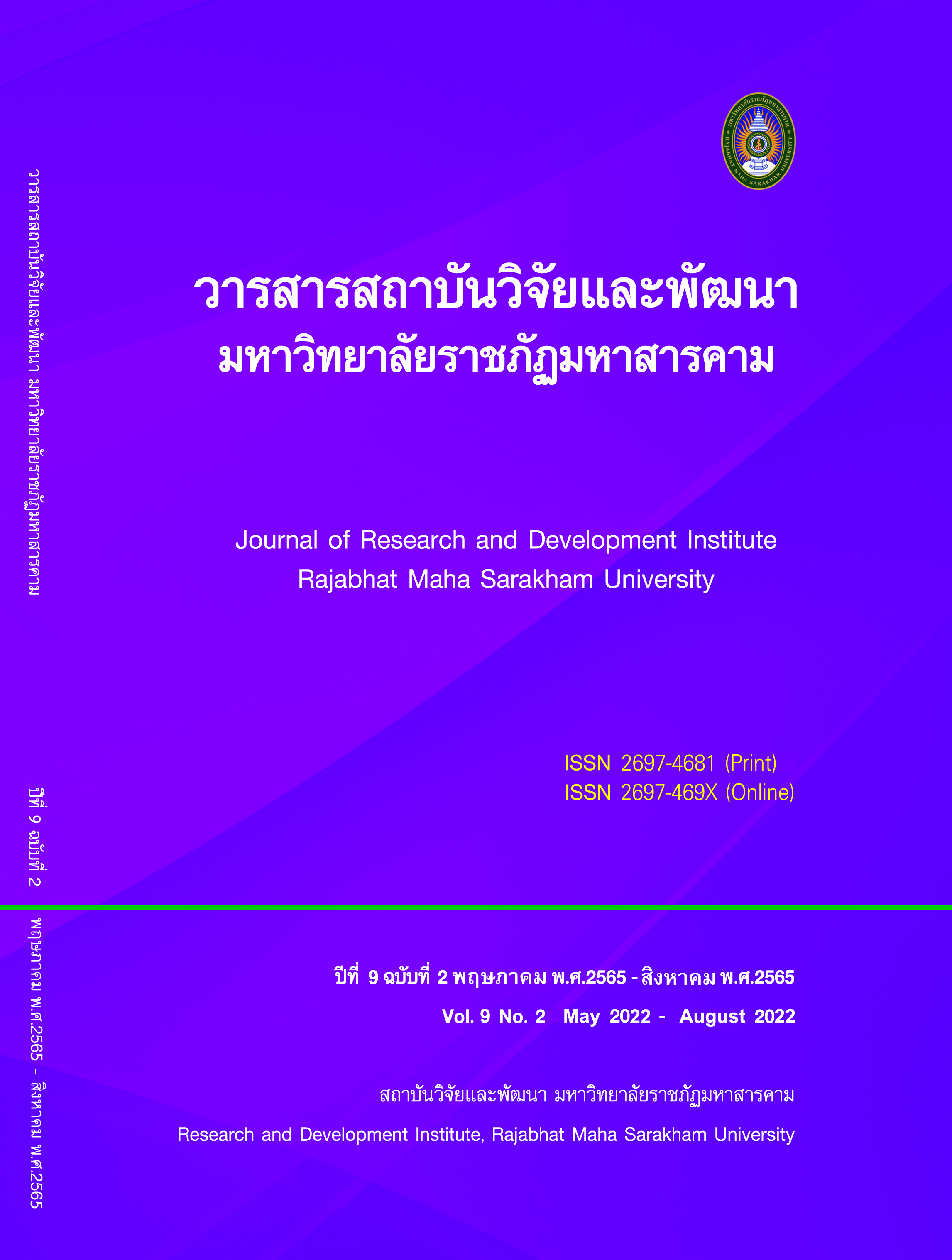Educational administration to become a learning organization of educational institutions. Under the Bueng Kan Primary Educational Service Area Office
Keywords:
learning organization, education administrationAbstract
The study have a purpose To study and compare opinions towards educational administration towards becoming a learning organization of educational institutions under the Bueng Kan Primary Educational Service Area Office. classified by location academic status and work experience Personnel population Under the Bueng Kan Primary Educational Service Area Office, Academic Year 2020, there were 329 samples from the comparison of the total population with the sample size table. Research tools as a questionnaire, a 5-level estimation scale and the reliability is 0.82 . The basic statistics used to analyze the data were frequency, percentage, mean, standard deviation, and statistic used for hypothesis testing such as t-test, F-test, and Mulitple Comparison Procedure with Scheffe' Method . Research results
- Opinions of personnel towards educational administration towards becoming a learning organization of educational institutions under the Bueng Kan Primary Educational Service Area Office. Overall, it's at a high level. When considering each aspect, it was found that Educational administration to become a learning organization of educational institutions. At a high level in every item
- Opinions of personnel towards educational administration towards becoming a learning organization of educational institutions under the Bueng Kan Primary Educational Service Area Office classified by location Overall and different aspects statistically significant at the .05 level
- Opinions of personnel towards educational administration towards becoming a learning organization of educational institutions under the Bueng Kan Primary Educational Service Area Office Classified by academic status Overall, no difference
- Opinions of personnel towards educational administration towards becoming a learning organization of educational institutions under the Bueng Kan Primary Educational Service Area Office Work experience classification overall different and different aspects in terms of learning among members of the organization on consciousness and the thinking system of people in the organization statistically significant at the .05 level
References
Angsuwan, P. (2018). September - December. Developing guidelines for learning organization in small basic educational institutions under the Office of Secondary Education Service Area 27. NRRU Community Research Journal. 12 (3).
Easterby‐Smith. (1997). Inter‐organizational knowledge transfer: Current themes and future prospects. Journal of management studie.s 45 (4), 677-690
ilpa-anan, S. (2017). An effective school reform process. Bangkok: Suttha Printing Toll Plaza.
Khamphabutr, P. (2017). Developing guidelines for developing educational institutions to become a learning organization in team learning. Under the Office of Kalasin
Primary Education Service Area 2. DPU graduate studies journal. 14(65).
Krcjce, R. V., & Morgan, D. W. (1970). Determining sample size for research activity. Education and Psychological Measurement, 30(3), 608 - 610.
National Productivity Institute. (2015). Knowledge management from theory to practice. Bangkok : Jirawat Express.
Peter M. Senge. (2000). The Fifth Discipline : The Art and Practice of the Learning Organization. New York : Doubleday.
Ribiere, V. M. (2001). Knowledge management intiative successes as a function of organization culture. Washington: George Washington University
Ruamsuk, A. (2015). Romoting the learning organization of educational institution administrators. Under the Office of Kanchanaburi Primary Educational Service Area District 3. Kanchanaburi : Kanchanaburi Rajabhat University.
Sriprom, K. (2017) The Model of Small School Management in Chumphon Province to Become a Learning Organization. Bangkok : University of North Bangkok.
Srisa-ard, B. (2013). Preliminary research. Bangkok : Suwiriyasan.
Downloads
Published
How to Cite
Issue
Section
License
Copyright (c) 2022 Journal of Research and Development Institute Rajabhat Maha Sarakham University

This work is licensed under a Creative Commons Attribution-NonCommercial-NoDerivatives 4.0 International License.
Articles that are published are copyrighted by the authors of the articles







